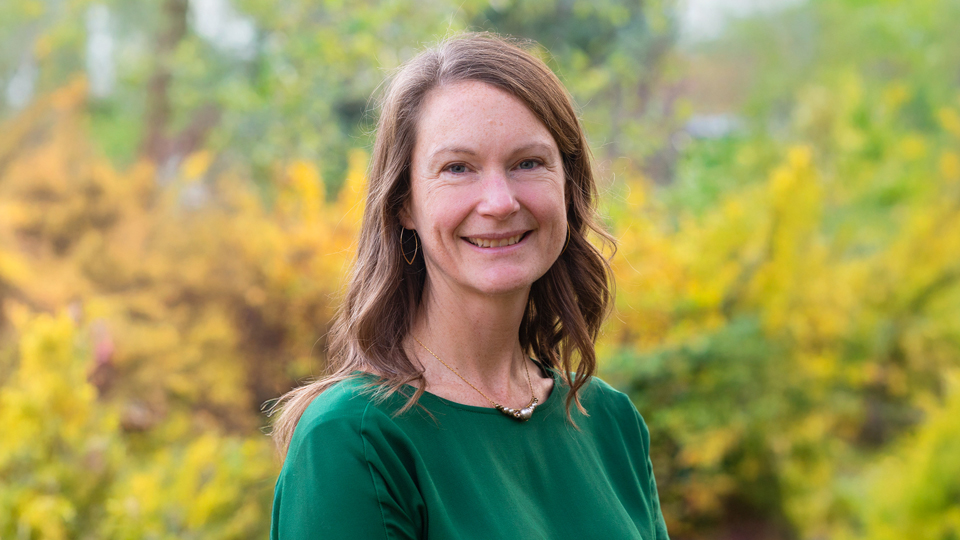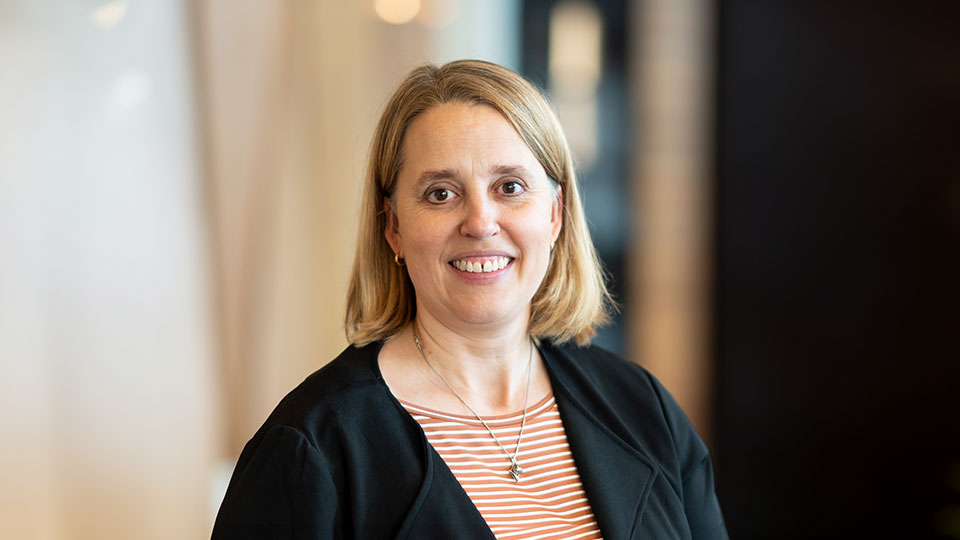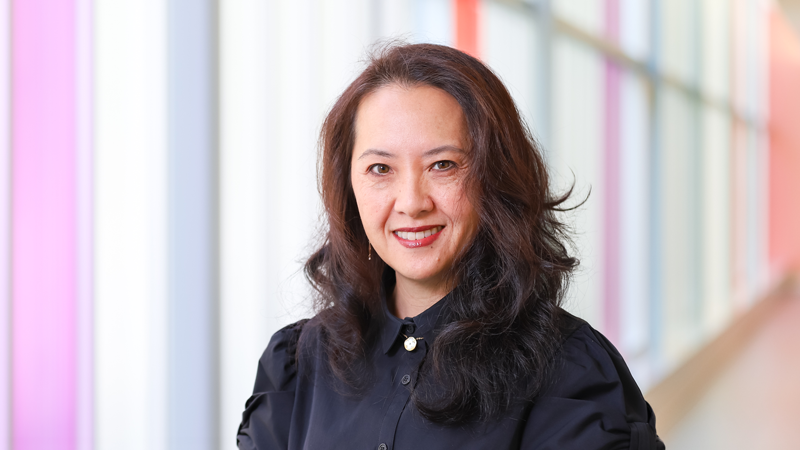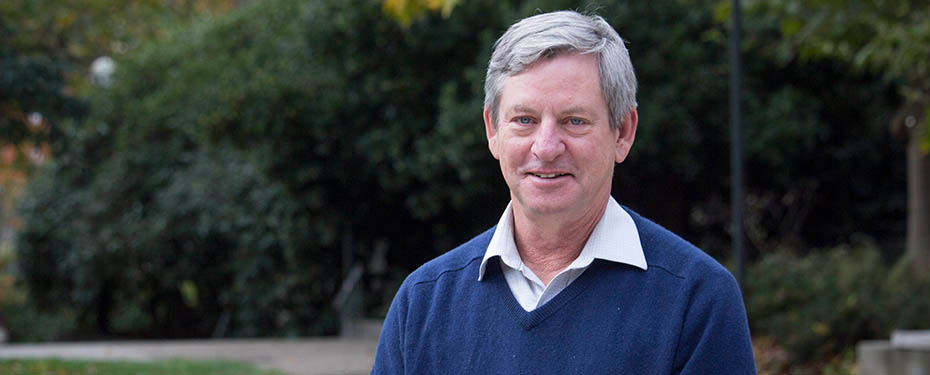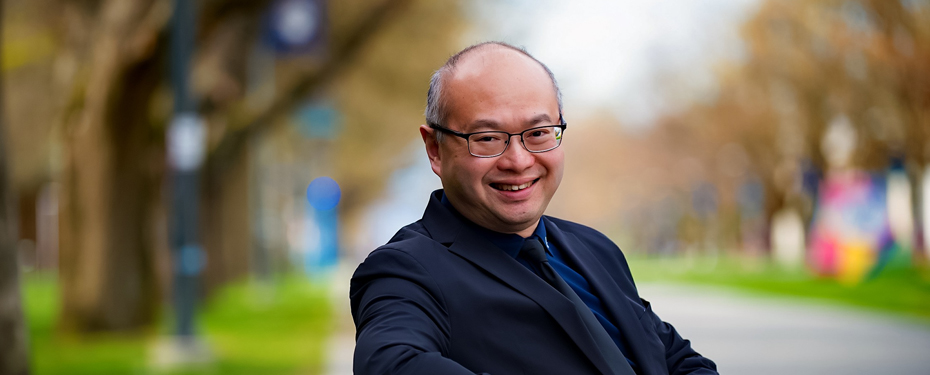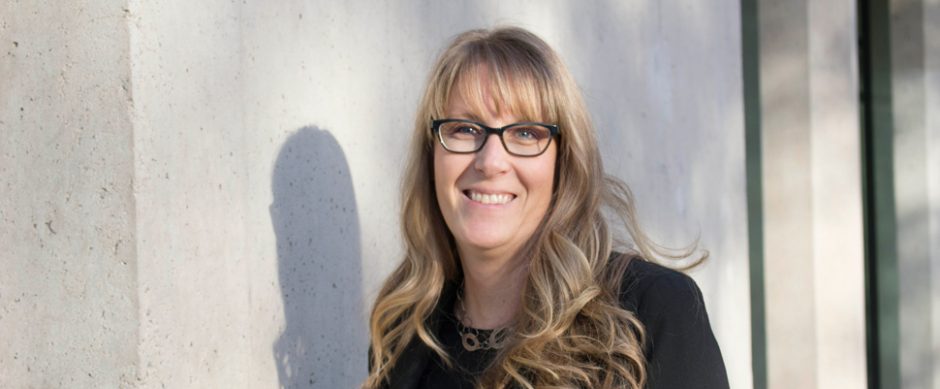
Nearly two decades ago Shanda Jordan Gaetz began her career at UBC as a receptionist in HR. Today, she’s the Executive Director of Faculty Affairs with the Faculty of Medicine, where she provides professional leadership in all areas related to organizational effectiveness, human resources and governance.
As a key player helping to implement the priorities set out in the Faculty of Medicine’s new strategic plan, Building the Future, Shanda works with internal and external partners, improving collaboration and coordination to support faculty and staff working at sites across the province.
What quality do you most admire in a leader?
SJG: Trust — because it goes both ways. If a leader trusts their team, they’ll perform better, and if a team trusts their leader, it makes for a stronger work dynamic. I believe trust must be in place for a leader to be truly effective.
What makes you laugh?
SJG: My children. I have two boys, aged seven and ten, and they are both hysterical. They are either making me laugh or making me crazy — all day, every day.
Who inspires you, and why?
SJG: While I can’t pinpoint a particular person, I am inspired by those who really follow their passions: people who pursue what makes them happy and who aren’t afraid to take risks.
What’s the most important lesson you’ve learned?
SJG: That when you push yourself outside your comfort zone, that’s when you really grow and develop and find out things about yourself that you wouldn’t have otherwise known.
As Executive Director, Faculty Affairs, what is your vision for the Faculty of Medicine?
SJG: Our faculty and staff stretch across BC’s diverse landscape — and together, we are making a tremendous impact in communities across the province. But I believe it’s always important to look at ways to enhance what we do, and improve the way we support our faculty and staff. In particular, I would love to increase opportunities for leadership development. Both UBC and the Faculty already have some programming in this area, but I’d love to see us advance even further — to give more people, regardless of the position they hold, the opportunity to develop their leadership skills and feel empowered, enabled and engaged to help move the organization forward.
I would also like our people to see UBC and the Faculty of Medicine as a potential life-long employer. I know that may sound naive in this day and age, but there are so many opportunities to grow and develop your career within UBC as a whole, and the Faculty of Medicine in particular. I don’t think the learning ever ends.
For you, what makes UBC different?
SJG: The wealth of opportunities. I started at UBC over 19 years ago — I had just finished university and took a three-month contract as a receptionist in HR, and I’ve never left. I’ve really had the opportunity to build a life-long career at the university. And there are not just tremendous career opportunities to pursue at UBC, there are education opportunities too. It’s the focus on life-long learning that makes UBC a really unique and exciting place to work.
And here at the Faculty of Medicine, every time I see our incoming students, or step into a lecture being delivered by one of our faculty members, or read a news release about what our researchers and trainees are working on, I’m reminded of just how amazing it is to be a part of this Faculty.
What is your favourite song?
SJG: Sweet Home Alabama. There are just so many different versions of that song, and I love each one. The song has a way of getting me out of whatever funk I’m in and pulling me into groove mode.
How do you like to recharge?
SJG: On a regular day, it’s a little bit of TV and reading after I get the kids to bed. When I have a bit more time off, I gravitate to the water to relax and reset.
What would you like to be remembered for?
SJG: In my personal life, I’d like to be remembered for being a good mom to my kids. Professionally, I’d like to be remembered for being a good leader. But I don’t want my team to think of me as ‘the boss’ — that’s not my style. I think that as long as the people who I work with feel like we’re all a team and all a part of moving things forward, and making things better, then I have done my job.
First job
SJG: My very first job was at Tastee-Freez in Vernon, BC. Tastee-Freez was a quasi-fast food joint, known for their ice cream, but they also served burgers and fries — very much like a Dairy Queen.
Greatest mentor
SJG: While I’ve never had a formal mentorship relationship, I look up to those who are comfortable with vulnerability, especially those in leadership roles. Having the people you work with know that you may not have all the answers, and that you don’t need to have all the answers, is important.
Best piece of advice
SJG: I have both received and given this advice: don’t get too hung up on getting things done at the end of every day. Very early on in my career, I felt anxious when things were left undone. My boss at the time reminded me that it’s okay, because the work will never be done, there will always be something new. Instead, focus your efforts on the priorities, and enjoy yourself along the way.
Favourite app
SJG: At the moment, my favourite app is Pinterest because I’m doing a reno and spend quite a bit of time gathering ideas and concepts of how I want things to look.
Currently reading
SJG: I just finished The Art of Racing in the Rain, by Garth Stein. I was so sad when it ended!
Favourite restaurant
SJG: Any one that I don’t have to cook at! Having a seven- and ten-year-old, who don’t exactly have established palettes, means we spend a lot of time at pizza places, but anytime I don’t have to cook is good.
Last vacation destination
SJG: California – the required Disneyland/Universal Studios trip. It was a blast! Before that was a road trip through the Rockies – up through Clearwater and Mount Robson Provincial Park, over to Jasper and then down to the Kootenays, home to some of the most spectacular wildlife and vistas I’ve ever seen.
Published: June 2017
